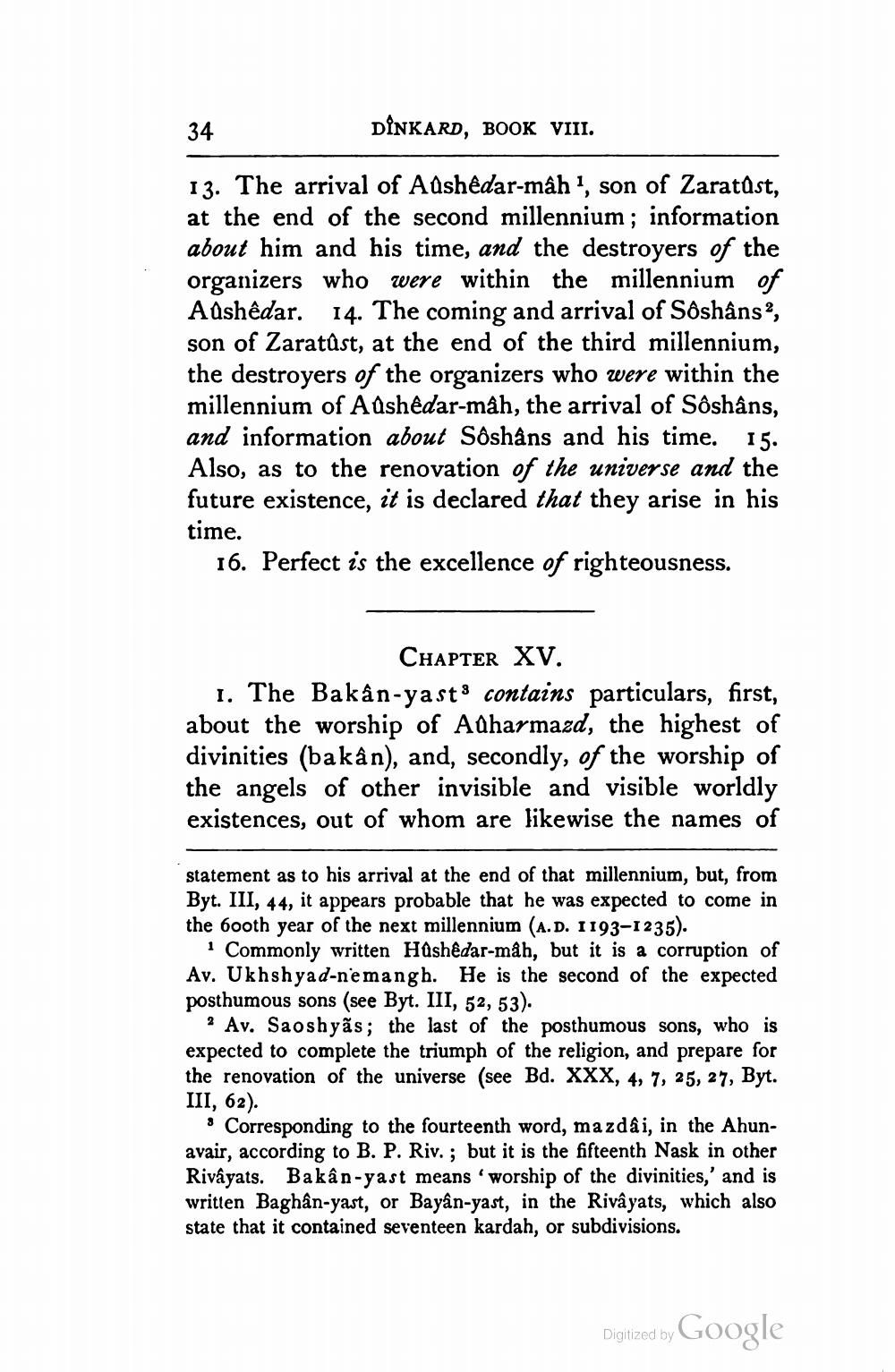________________
34
DINKARD, BOOK VIII.
13. The arrival of Aûshêdar-mâh 1, son of Zaratûst, at the end of the second millennium; information about him and his time, and the destroyers of the organizers who were within the millennium of Aûshêdar. 14. The coming and arrival of Sôshâns2, son of Zaratust, at the end of the third millennium, the destroyers of the organizers who were within the millennium of Aûshêdar-mâh, the arrival of Sôshâns, and information about Sôshâns and his time. 15. Also, as to the renovation of the universe and the future existence, it is declared that they arise in his time.
16. Perfect is the excellence of righteousness.
CHAPTER XV.
1. The Bakân-yasts contains particulars, first, about the worship of Aûharmazd, the highest of divinities (bakân), and, secondly, of the worship of the angels of other invisible and visible worldly existences, out of whom are likewise the names of
statement as to his arrival at the end of that millennium, but, from
Byt. III, 44, it appears probable that he was expected to come in the 600th year of the next millennium (A.D. 1193-1235).
1 Commonly written Hûshêdar-mâh, but it is a corruption of Av. Ukhshyad-ne mangh. He is the second of the expected posthumous sons (see Byt. III, 52, 53).
2 Av. Saoshyas; the last of the posthumous sons, who is expected to complete the triumph of the religion, and prepare for the renovation of the universe (see Bd. XXX, 4, 7, 25, 27, Byt. III, 62).
• Corresponding to the fourteenth word, mazdâi, in the Ahunavair, according to B. P. Riv.; but it is the fifteenth Nask in other Rivâyats. Bakân-yast means 'worship of the divinities,' and is written Baghân-yast, or Bayân-yast, in the Rivâyats, which also state that it contained seventeen kardah, or subdivisions.
Digitized by
Google




